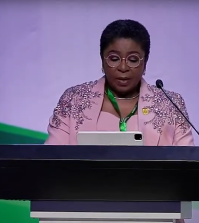‘Never stop challenging the system’: the mindset that took Jeremy Heywood to the top of the UK civil service

Aspiring civil servants should follow the example of the widely-admired former UK Cabinet secretary Sir Jeremy Heywood and seek to drive change by continuously challenging the “status quo”, his wife Suzanne said at a book launch this week.
In the virtual launch of a book on the working life of her late husband, Suzanne Heywood said one key message is that the institution of the civil service can only evolve and adapt if it’s constantly questioned and challenged.
Over a prolific career spanning more the three decades, Jeremy Heywood held a wide range of senior positions, serving four successive prime ministers and becoming Cabinet secretary and head of the civil service. He died in 2018.
Suzanne Heywood described how the book, What Does Jeremy Think? Jeremy Heywood and the Making of Modern Britain, follows the protagonist on a journey from “maverick” to a central figure in recent British politics. In that transition from outsider to pillar of the political establishment, she said, he never stopped asking difficult questions about how the system operated.
Fight from the inside
“He does start out being a maverick and an outsider and thinking he’s cleverer than everyone else, and then he becomes somebody who tries to make the institution better. But the one thing that doesn’t change all the way through is that he questions the status quo, always,” Suzanne Heywood said.
“He would ask the questions no one else dared ask. The heads of the military would come in and he would ask why do we need a nuclear deterrent, which is a kind of unanswerable question and they would all bristle, but it was a fair question to ask.
“As far as Jeremy was concerned, no question was off the table. And he would encourage anyone coming in now to keep asking questions, challenge the system, challenge how it works, and never stop challenging it. Because the civil service is a wonderful institution but it needs to keep evolving, and the only way it changes is if people keep on challenging it and making it move.”
Government ain’t easy
During the virtual book launch, Suzanne Heywood was asked by one questioner what her late husband would have made of the government’s handling of the seismic events that have occurred since his retirement and death – particularly the ongoing coronavirus pandemic.
Sir Jeremy would have been hesitant to “throw rocks”, she replied. “He knows how difficult it is to manage anything like this from inside government. It’s all very well for us to sit outside, but you read the stories of what it was like to manage everything from Black Wednesday [when the UK fell out of the European Exchange Rate Mechanism] to the foot and mouth crisis – it’s incredibly difficult in the middle of government when you’re running at pace against something that’s unknown.”
With regards to the COVID-19 pandemic, Suzanne Heywood said her late husband would have been heartened to observe certain aspects of the government’s response, including its involvement of outside parties such as the SAGE scientific advisory body. “That kind of open policy making, which was one of his big themes… he would have loved that – that’s very Jeremy.”
Don’t expect perfection – but seek it
But equally, she said Heywood would not have shied away from looking critically at the government response to the crisis. “He would have been at the forefront of telling the civil service: ‘When we’ve got this under control, when we’ve got the vaccine out there and we start to go back to something resembling normality, this is the moment to look honestly at ourselves and say: what did we not do very well and how are we going to do it better next time?’.”
In particular, she said there would be some “really interesting questions” about the advice given to the prime minister, whether the SAGE group was involved sufficiently, and why the UK fared better on rolling out the vaccination programme than on PPE provision.
“These are really interesting questions. I don’t know what the answers are. As I say, I think Jeremy would hesitate to throw stones, but he would be really pushing to do some really in-depth analysis of what we’ve learned and what we do next.”





















